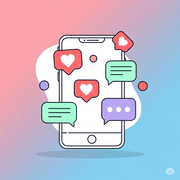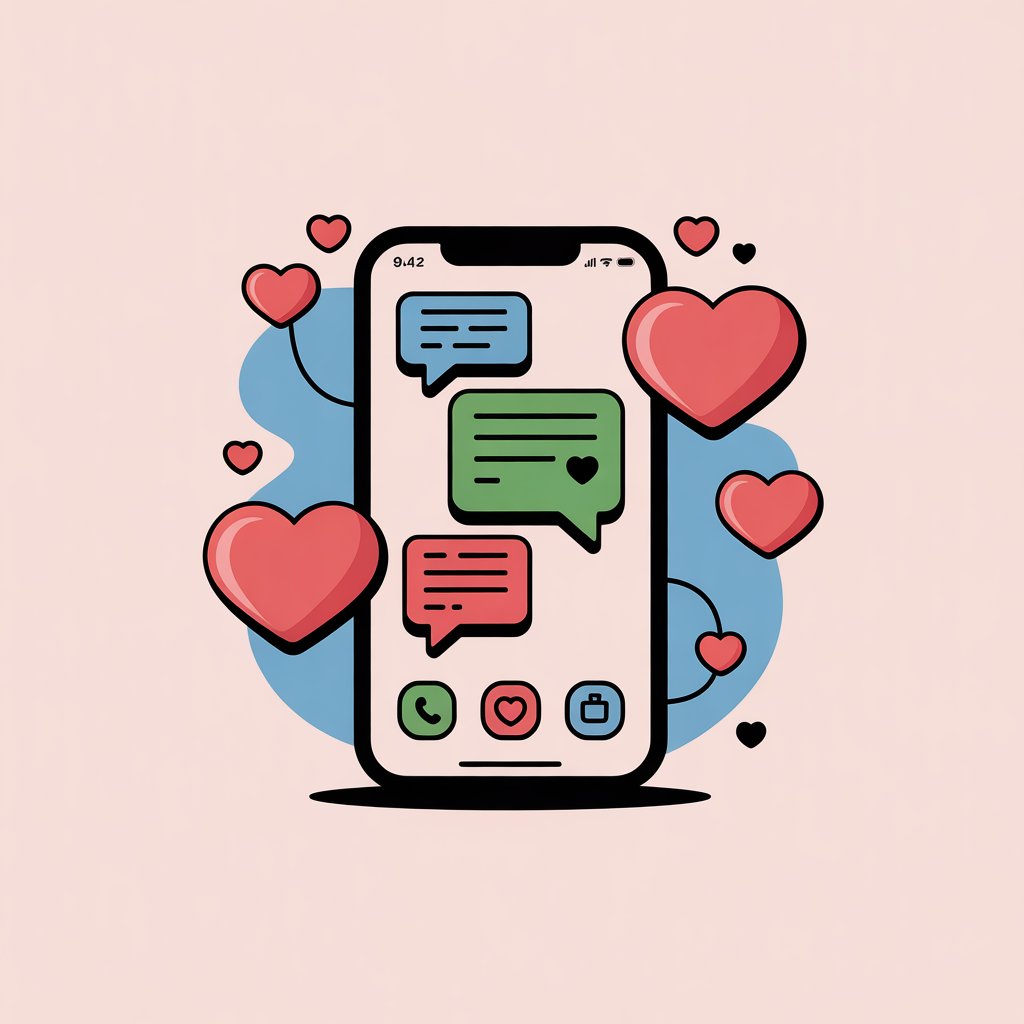You’ve done the hard part: you crafted the perfect bio, selected a handful of photos that are both flattering and authentic, and you’re finally ready to start swiping. But as you dive into the world of online dating, you quickly realize there’s a whole new language to learn.
Navigating this digital lexicon is more than just a trivial pursuit; it’s a crucial skill for protecting your time, managing your expectations, and understanding the intentions of the people you match with. This guide is your rosetta stone for the modern dating world. We’ll break down the most common terms, from the confusing to the downright strange, so you can communicate with clarity and confidence.
The Foundational Lingo: Terms You Can’t Ignore
Before we get into the niche slang, let’s cover the big ones. These terms describe common behaviors and relationship dynamics you are almost guaranteed to encounter on apps like Tinder, Hinge, and Bumble. Understanding them is the first step to becoming a savvy digital dater.
🔒 Secure verification required. Ad-supported content.
By tapping, you agree to our Terms of Use.
Ghosting: The Disappearing Act
Perhaps the most infamous term of all, ghosting is when someone you’ve been talking to or even dating abruptly cuts off all communication without any explanation. They stop answering texts, ignore your calls, and essentially vanish from your life like a ghost. It’s a confusing and often hurtful experience that leaves the “ghostee” wondering what went wrong. While it feels personal, it’s often more a reflection of the ghoster’s inability to communicate directly.
Breadcrumbing: Leading You On with Morsels of Attention
If ghosting is a sudden disappearance, breadcrumbing is a slow, torturous fade. This is when someone gives you just enough attention—an occasional “like” on Instagram, a sporadic late-night text, a vague “we should hang out soon”—to keep you interested, but with no real intention of forming a genuine connection. They are leaving a trail of “breadcrumbs” to keep you as an option without any commitment.
Situationship: The Vague “More Than Friends” Zone
What are we? If you have to ask, you might be in a situationship. This term describes a romantic or sexual relationship that remains undefined. You spend time together, you have a connection, but you haven’t had the “Define The Relationship” (DTR) talk. It lacks clear labels, commitment, and future plans. While some people enjoy the flexibility of a situationship, it can be frustrating for those seeking a more committed partnership.
Cuffing Season: Seasonal Pairing
You may notice an uptick in relationship-focused profiles as the weather gets colder. Welcome to cuffing season. This refers to the period during the fall and winter months when single people feel a greater desire to be “cuffed” or tied down in a serious relationship. The cold weather and an abundance of indoor, cozy activities make having a steady partner more appealing. These relationships sometimes last, but often they “thaw” out by springtime.
Decoding Profiles and Early Conversations
The lingo starts before you even send the first message. Profiles and initial chats are often filled with acronyms and phrases that act as shorthand for what a person is (or isn’t) looking for. Knowing what they mean can save you a lot of wasted swipes.
A Glossary of Common Acronyms
Dating profiles often look like a bowl of alphabet soup. Here are some of the most common abbreviations you’ll encounter:
- LTR: Long-Term Relationship. This person is looking for a serious, committed partnership.
- ENM/Poly: Ethically Non-Monogamous or Polyamorous. This individual is open to or is currently in relationships with more than one person, with the knowledge and consent of everyone involved.
- FWB: Friends With Benefits. A purely physical relationship without the romantic commitments of a traditional partnership.
- MBA: Married But Available. A major red flag for most, this indicates the person is married and seeking something on the side.
- Sober Curious: Someone who is exploring a lifestyle with less or no alcohol, but may not identify as fully sober.
What “Vibes” and Vague Phrases Really Mean
Beyond acronyms, profiles are full of subjective language. “Good vibes only” might sound positive, but it can sometimes mean “I avoid difficult conversations.” “Looking for a partner in crime” is a classic cliché that usually just means they want someone fun to hang out with. The recent explosion of the term “rizz” (short for charisma) refers to someone’s skill in charming or seducing a potential partner. If someone says they have “unspoken rizz,” they’re boasting about their natural charm.
Advanced Lingo for When Things Get Complicated
Once you’ve been chatting for a while or have gone on a few dates, a new set of terms may emerge to describe the evolving (or devolving) dynamic. Recognizing these can help you spot potentially unhealthy behaviors early on.
Benching and Orbiting: The Modern Back-Burner
Similar to breadcrumbing, benching is when someone puts you on their “substitutes’ bench.” They like you enough to not let you go completely, but not enough to commit. They’ll keep you in rotation in case their first choice doesn’t work out. Orbiting is the social media version of this. A person might ghost you but continue to watch all your Instagram stories and like your posts, keeping themselves in your “orbit” without direct communication.
Love Bombing: Too Much, Too Soon
Be wary of someone who showers you with extreme affection, admiration, and attention right from the start. This is known as love bombing. While it can feel flattering, it’s often a manipulation tactic used to make you feel dependent on them. The intense affection can disappear just as quickly as it started once they feel they have “won” you over.
Zombieing: The Ghost Who Returns
You thought you were ghosted, you went through the five stages of grief, and you moved on. Then, months later, a “u up?” text appears on your screen. This is zombieing—when a former ghost rises from the dead and tries to re-enter your life. It’s often a sign of boredom on their part and rarely leads to a healthy connection.
Quick Reference Guide: Dating Lingo at a Glance
To help you keep everything straight, here’s a handy table comparing some of the most common terms you’ll see in the wild world of online dating.
| Term | What It Really Means | Red Flag Level |
|---|---|---|
| Catfishing | Using a fake identity (photos, name, life story) to deceive someone online. | Severe 🚩🚩🚩🚩🚩 |
| Kittenfishing | A less severe version of catfishing. Using outdated photos, exaggerating height, or lying about age/job. | Moderate 🚩🚩🚩 |
| Roaching | When you discover the person you thought you were exclusively dating is hiding other partners (like finding one cockroach means there are many more). | Severe 🚩🚩🚩🚩🚩 |
| Whelming | When your match complains to you about how overwhelmed they are with all their other matches. It’s a form of bragging. | Annoying / Mild 🚩🚩 |
| Soft Launch | Hinting at a new relationship on social media without showing the person’s face (e.g., a photo of two coffee cups). | Neutral / Informational |
| DTR | “Define The Relationship” – The conversation where you establish labels and expectations. | Healthy / Necessary Step |
Navigating the Lingo with Confidence
Now that you have the vocabulary, how do you use it? The ultimate goal isn’t to become a master of slang, but to become a master of clear communication. If someone uses a term you don’t understand, don’t be afraid to ask. A person who is genuinely interested in you will be happy to clarify. Someone who gets defensive or evasive is showing you a red flag.
Ultimately, the most powerful tool you have is your own directness. Be clear in your profile about what you’re looking for. Use your words to express your intentions and feelings. By doing so, you’ll not only cut through the noise but also attract people who appreciate and reciprocate that same level of honesty.
The world of digital dating can be complex, but it doesn’t have to be a source of anxiety. Think of this new language not as an obstacle, but as a set of tools that can help you better understand the landscape. With this knowledge, you are better equipped to protect your energy, identify genuine connections, and navigate your dating life with more ease and self-assurance. As with any form of communication, a deeper understanding can make all the difference. For those interested in the broader trends, extensive research on decoding dating app lingo and user experiences shows just how common these scenarios have become in the United States.





